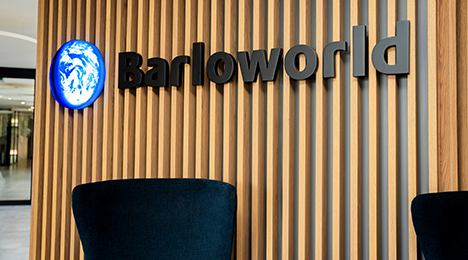As investors, we tend to focus most on what we can see. Things like portfolio makeup, and the returns generated by those investments. No less important, however, are the less obvious things, like the taxes you never paid in the first place because of technology that quietly runs in the background. You may only think about taxes once a year, but here at Betterment, every day is Tax Day. This sort of year-round tax optimization sounds boring, but believe us, it makes a difference. Taxes can steadily eat away at your returns over the years. So any advisor worth their salt should take taxes seriously and minimize them as much as possible. These “invisible” wins are hard to spot in the moment, so let’s shine a light on them now. Here are four sophisticated ways we buy, sell, and hold your shares, all in the name of trimming your tax bill. From a tax perspective, you have three main account types at your disposal when saving for retirement: Because of their different tax treatments, certain types of investments are a better fit for certain accounts. Interest from bonds, for example, is typically taxed at a higher rate than stocks, so it often makes sense to keep them away from taxable accounts. This sorting of asset types based on tax treatments, rather than divvying them up equally across accounts, is known as asset location. And our fully-automated, mathematically-rigorous spin on it is called Tax Coordination. When Tax Coordination is turned on, the net effect is more of your portfolio's growth is shielded in a Roth account, the pot of money you crucially don't pay taxes on when withdrawing funds. To learn more about our Tax Coordination feature and whether it’s right for you, take a peek at its disclosure. When the weights of asset classes in your portfolio drift too far from their targets, our technology automatically brings them back into balance. But there's more than one way to accomplish this portfolio rebalancing. You can simply sell some of the assets that are overweight, and buy the ones that are underweight (aka "sell/buy" rebalancing), but that can realize capital gains and result in more taxes owed. So we first take advantage of any available cash flows coming into or out of your portfolio. When you make a withdrawal, for example, we intentionally liquidate overweight assets while striving to minimize your tax hit as much as possible (more on that below). And when you deposit money or receive dividends, we use those funds to beef up underweight assets. Say there's no way around it: you need to sell an asset. Maybe cash flows aren't enough to keep your portfolio completely balanced. Or you’re withdrawing funds for a major purchase. The question then becomes: which specific assets should be sold? The IRS and many brokers follow the simple script of "first in, first out," meaning your oldest assets are sold first. This approach is easier for your broker, and it can avoid more highly-taxed short-term capital gains. But it often misses the opportunity of selling assets at a loss, and harvesting those losses for potential tax benefits. So our algorithms take a more nuanced approach to selecting shares, and we call this technology TaxMin. TaxMin is calibrated to avoid frequent small rebalance transactions and seek tax-efficient outcomes, things like avoiding wash sales and minimizing short-term capital gains. Life is full of ups and downs, and your investments are no different. At times, most notably during market downturns, the price of an asset may dip below what you paid for it. Tax loss harvesting takes advantage of these moments, selling taxable assets that fit this bill, then replacing them with similar ones so you stay invested. You can then use those harvested losses to shift taxes you owe now into the future. The strategy doesn’t make sense for everyone, but it can help some investors sprinkle tax advantages on a portion of their taxable investing. And our fully-automated spin on it takes a tax hack once reserved for the wealthy and makes it available to the masses. Happy harvesting. Because it’s one of the most reliable ways to boost your returns. We can’t control the market, but tax laws? Those are set by the IRS and broadcast far and wide. And we can help you navigate them wisely. We wouldn’t be doing our job if we didn’t. So the next time you take a peek at your returns, ask yourself how much of that growth will still be there come tax time. If you’re a Betterment customer, you can rest assured we’re working tirelessly to minimize those tax drags. You may not realize it right away, and rightfully so. Live your life, and leave the tax toiling to us.
1. Choosing which assets go where

2. Rebalancing wisely
3. Choosing which taxable shares to sell (or donate)
 In the case of donating shares, we apply the same logic in reverse, or TaxMax as we call it. That's because when donating shares, it benefits you to choose the ones with the most gains, since any shares bought as a replacement will effectively have a reset tax bill.
In the case of donating shares, we apply the same logic in reverse, or TaxMax as we call it. That's because when donating shares, it benefits you to choose the ones with the most gains, since any shares bought as a replacement will effectively have a reset tax bill.
4. Harvesting losses
In conclusion, we care a lot about taxes

 14 hours ago
1
14 hours ago
1























 English (US) ·
English (US) ·